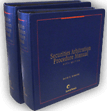Retirees and older individuals face unique financial challenges as they head into their golden years. The goal for individuals or couples is to retire with enough money to live on, but there is no telling how long that needs to be. They also want to enjoy the hard-earned fruits of their labor.
Some may contemplate playing the market as a way to bring in money and protect the nest egg. They may do it on their own, while others count on expertise from a stockbroker or financial advisor. There are no guarantees when it comes to investing in the stock market.
Avoid these mistakes
Whether working with a financial advisor or doing the legwork yourself, here are common mistakes many elderly investors come to regret:
- Starting too late: Rather than thinking that you don’t have enough money to get into investing, it is better to start with a smaller amount earlier on to let the portfolio grow organically over time.
- Not increasing the amount over time: Those building up their wealth need to invest on a sliding scale that reflects the growing number of resources.
- Paying too much in fees: Fees should never be a huge expense, but even modest amounts can still eat away at funds. So, it is best to identify ways to lower those fees by changing brokerages or pick funds with a lower expense ratio.
- Making emotion-based decisions: Buying and selling should not have an emotional component like the hype about new stock or sentimental attachment to old stocks. Instead, focus on facts and research.
- Day trading: Frequent trading adds fees and takes an expert’s ability to identify the right time to buy or sell. It can also take a lot of work and demands a high tolerance for risk.
- Following the pack: Just because others are selling doesn’t mean you should as well. And buying when others do means you are late and may fall victim to a correction.
Trust but verify
Those getting financial guidance should not blindly trust their advisors. Their interests may not be the same as yours, and they also may make one of the above mistakes. This can dictate severing the relationship. If there are signs of neglecting their fiduciary duty, it may make sense to talk to an attorney who can file a claim against brokers and firms.


